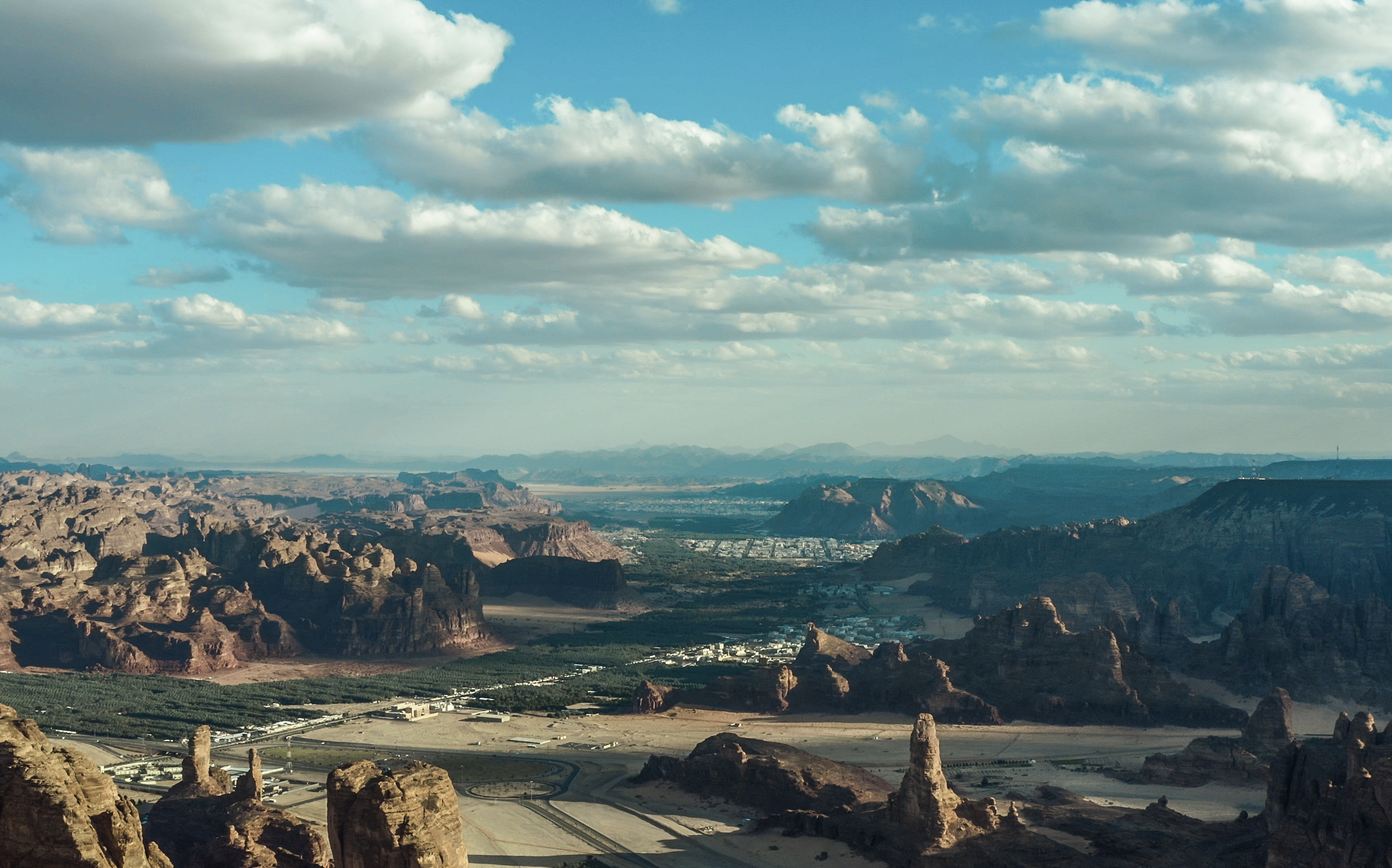First look: AlMusalla Prize 2024 crowns its inaugural winner and zooms into weaving traditions
New architectural competition AlMusalla Prize 2024 announces its winner, a collective including East Architecture Studio. The award and commission by the Diriyah Biennale Foundation are part of the upcoming Islamic Arts Biennale
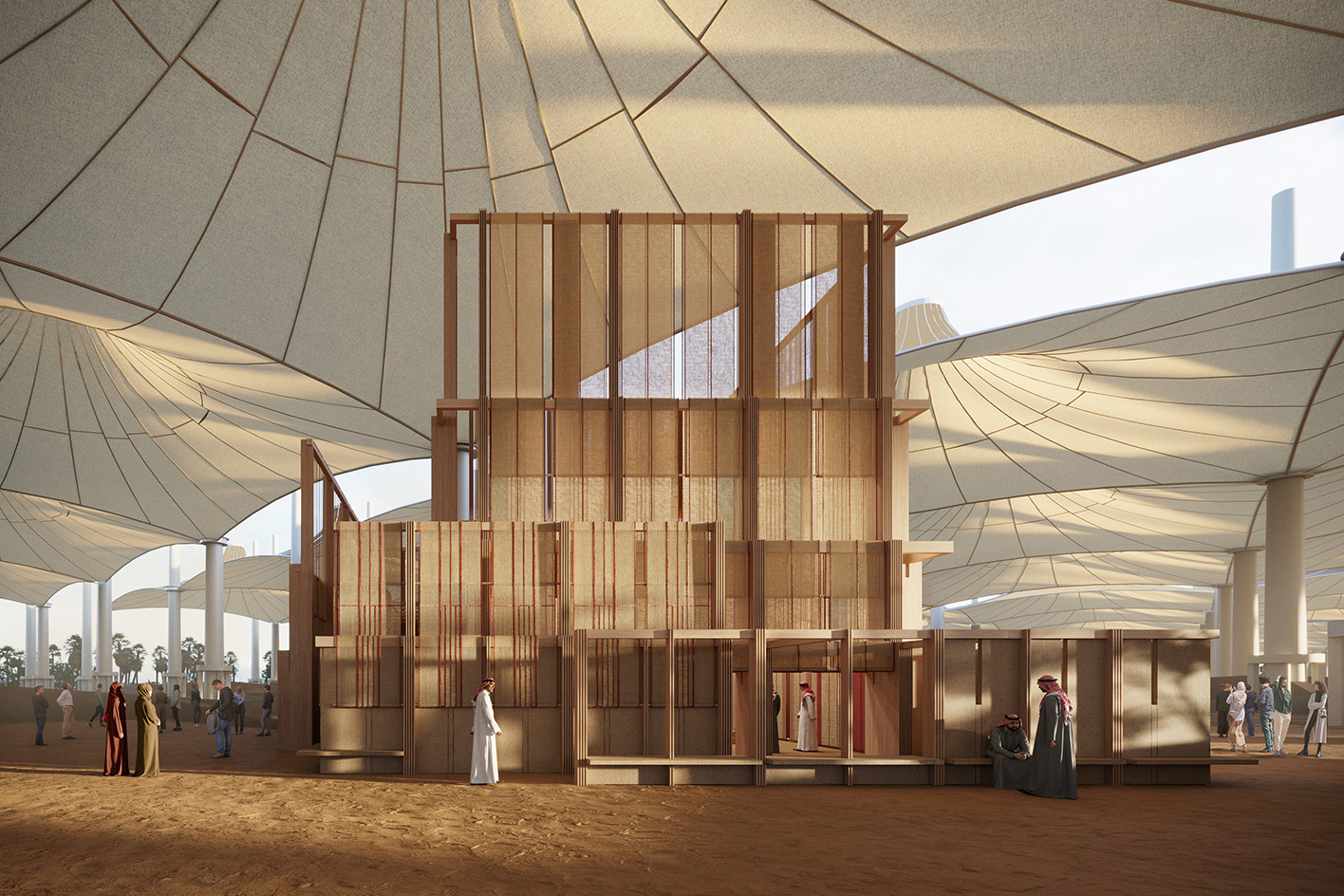
The inaugural AlMusalla Prize 2024 has been awarded to a collective including Lebanon- and UAE-based East Architecture Studio, international engineering firm AKT II, and Beirut- and San Francisco–based artist Rayyane Tabet. The new architectural gong and commission, presented by the Diriyah Biennale Foundation as part of the upcoming Islamic Arts Biennal, sets out to create the design of a Musalla, a space for prayer and contemplation, which will eventually be built in the Western Hajj Terminal at King Abdulaziz International Airport in Jeddah, Saudi Arabia (where the arts event takes place).
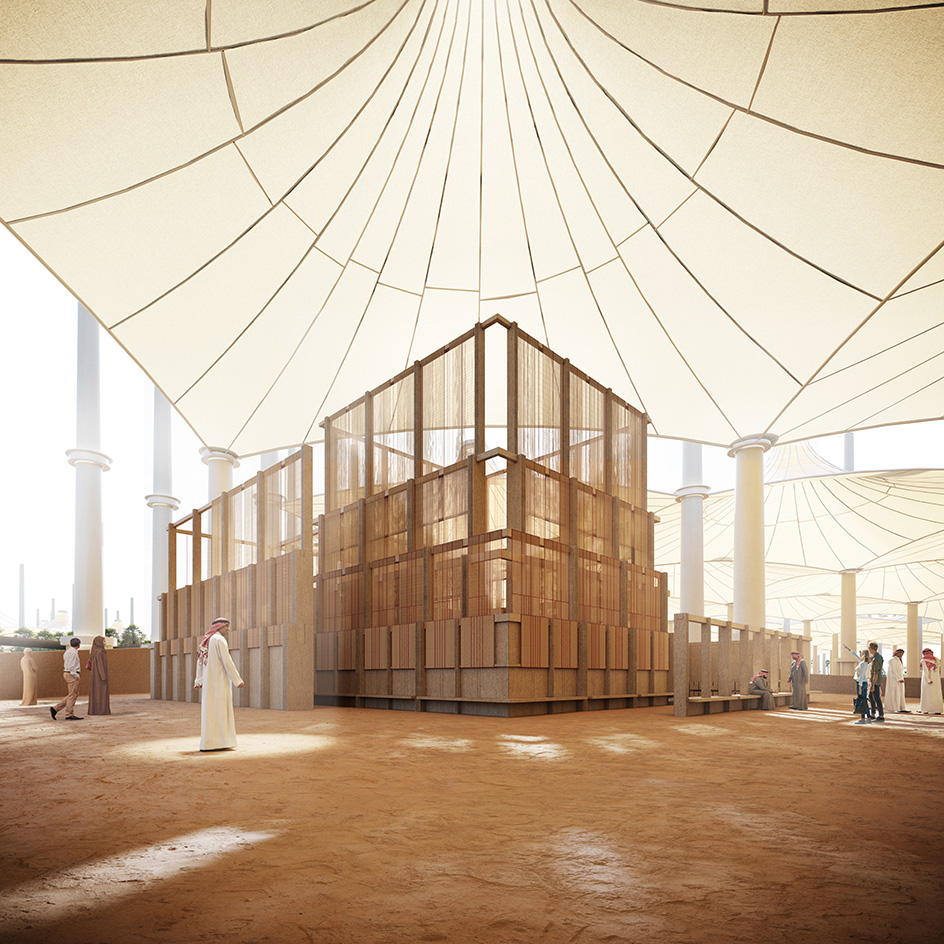
AlMusalla Prize 2024: the winning design
The award, which includes the realisation of the proposed installation and a monetary prize, outlined that submissions must be collaborative between an architect, an engineer and an artist. The participating designs should meet all the requirements for prayer but should also be created in sustainable architecture of at least 50 sq m in size.
The winning design draws on weaving techniques and uses a modular system comprising fragments built of an engineered, glue-laminated palm wood composite, the product of date palm waste, exposing and revealing the sectional profile of a palm trunk. East Architecture Studio principal Nicolas Fayad explains: 'Architecture starts with abstraction. The design process we adopt reorients the narrative of woven textile as both an art and a functional discipline, where we borrow from an artistic practice to create spaces of coexistence. Weaving is also an act of making, a ritual in itself.
'And this idea of ritual talks about continuity, or a continued legacy that references the house of the prophet in Medina, entirely built of materials that come from nature. In that sense, our design approach for the Musalla is a true act of reconciliation between the historical and the contemporary, a real exercise in optimism and interpretation.'
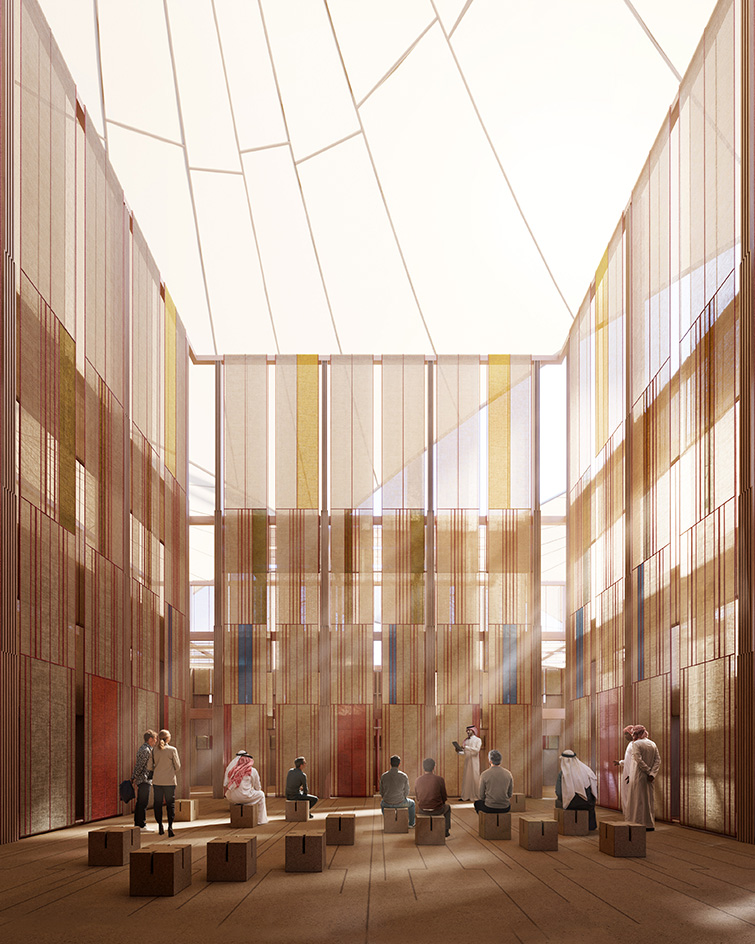
He continues: 'Following this thinking, “Weaving” becomes a model for creativity, an homage to a predominant material culture that emerges from nature, shaping the contextual specificities of the region, incrementally revealing an interpreted typology for communal experiences. The central courtyard, for example, which [recalls] historical precedents of mosque architecture, is a space that talks about generosity, inviting the public for social gatherings and communal manifestations. The architecture of the prayer space, however, is slightly more contained, reflecting spirituality in a meditative atmosphere.'
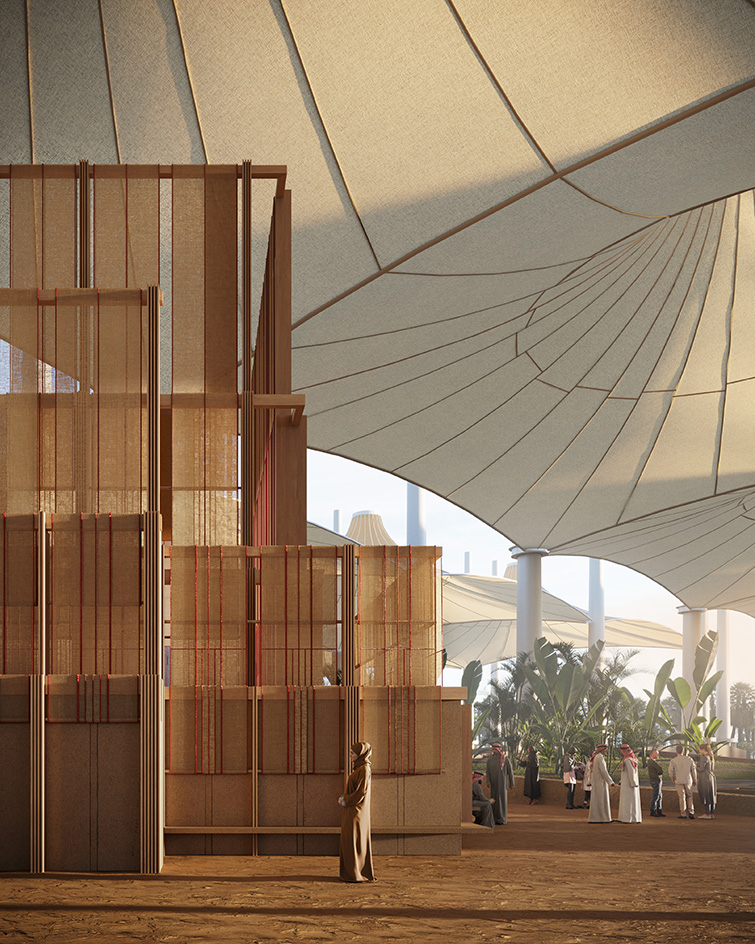
The jury members – consisting of Prince Nawaf Bin Ayyaf, Farrokh Derakhshani, Lina Ghotmeh, Azra Akšamija, and Ali Malkawi – praised the winning scheme for its nuanced approach and for fostering a sense of belonging. Meanwhile, as a bonus, the installation is designed to be easily dismantled, transported to a new destination, and reassembled after its closing, when the biennale events end.
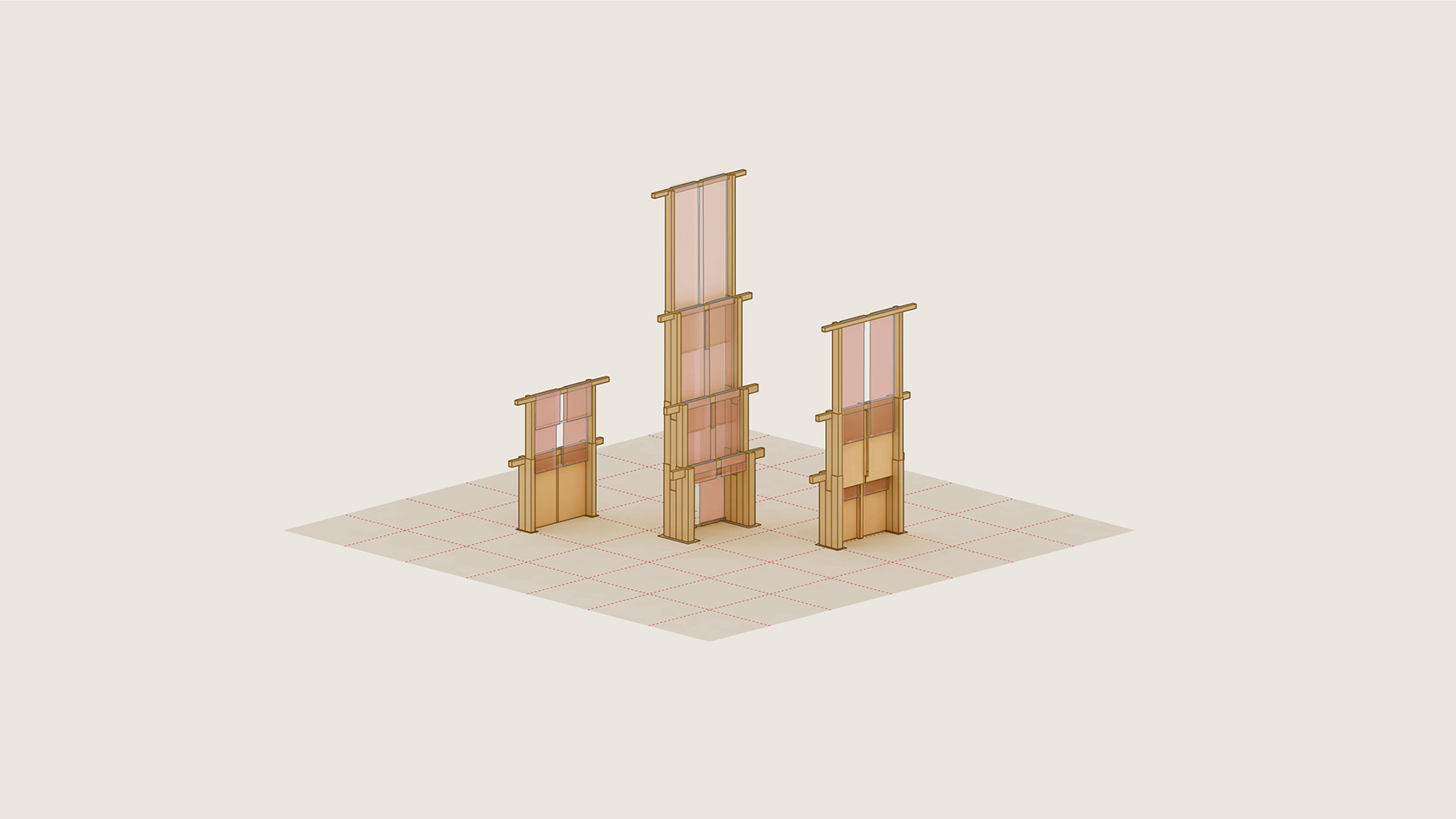
Jury chair Prince Nawaf Bin Ayyaf, who is an urbanist, researcher and senior advisor at the Saudi Ministry of Culture, says on the new award's intention: 'In this inaugural edition of the AlMusalla Prize [...] we wanted to shed light on the often-overlooked architectural typology of a Musalla which, as opposed to its much more studied counterpart – the Mosque, is a temporary space of prayer in Islamic cultures.
Wallpaper* Newsletter
Receive our daily digest of inspiration, escapism and design stories from around the world direct to your inbox.
'We were keen on fostering diversity and inclusivity of all. We wanted to show how different people from different Islamic cultures and backgrounds can comprehend and then reflect on their own understanding of this space. We were also keen on creating a space that is most welcoming and inviting to non-Muslims as well, to be able to contemplate and reflect in an artistic space full of spectacle and wonder.
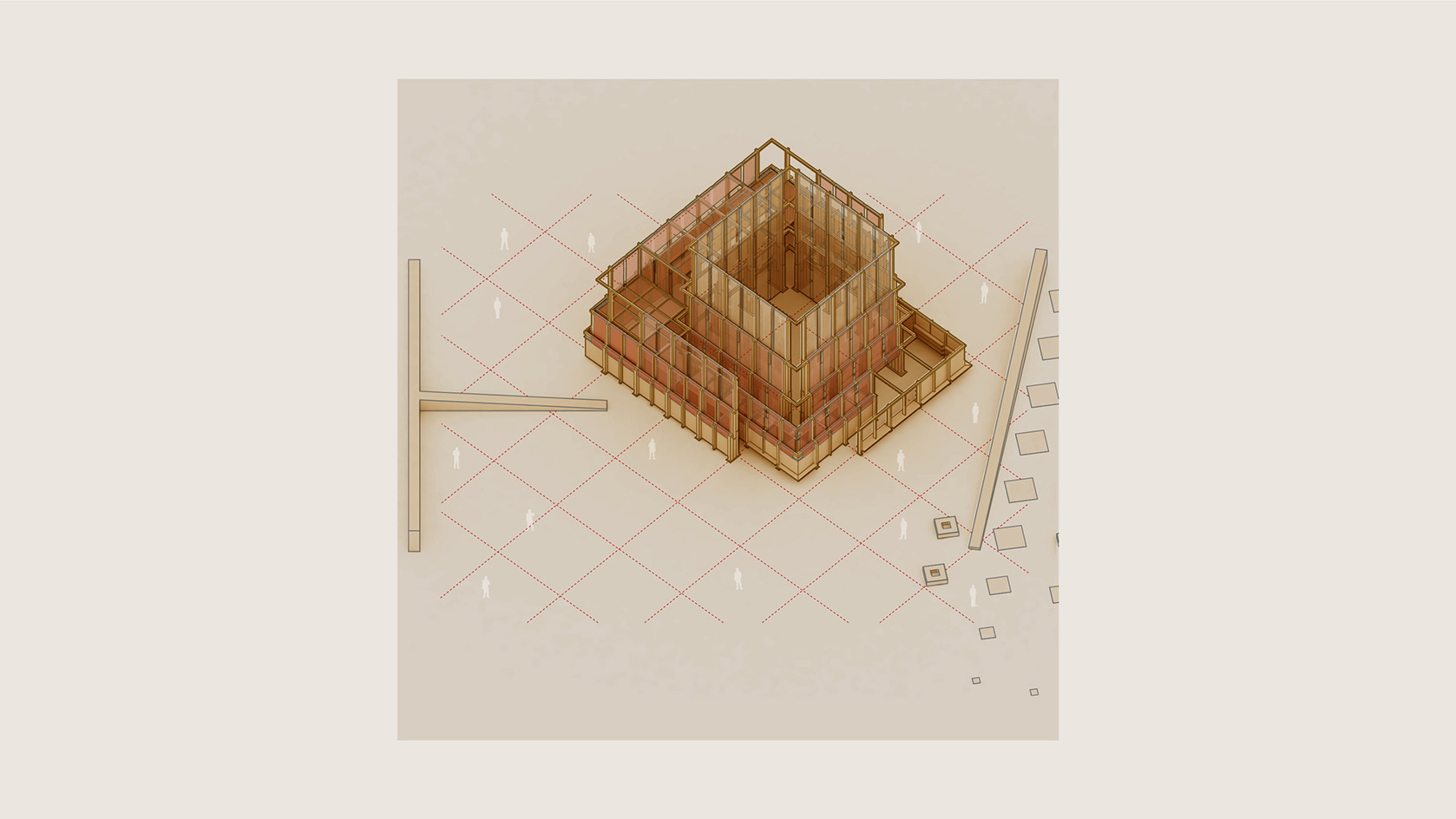
'Derived from local materials, utilised in a modular structure, and inspired by local weaving traditions, the winning design stood out in its capability to marry sustainability with an original perspective on Musalla architecture typology. [...] Not only did it stand out for what it outwardly presents, but also for the grand potential of what it can possibly present if [the architects] succeed in this proposition. [...] The experimental nature in this pursuit is identified as one of the standout strengths of this proposal. Converting experimentation into construction and proving its feasibility would create a rich narrative and raise the environmental awareness that is inherent in reusing the waste of palm trees in an abundance of ways.'
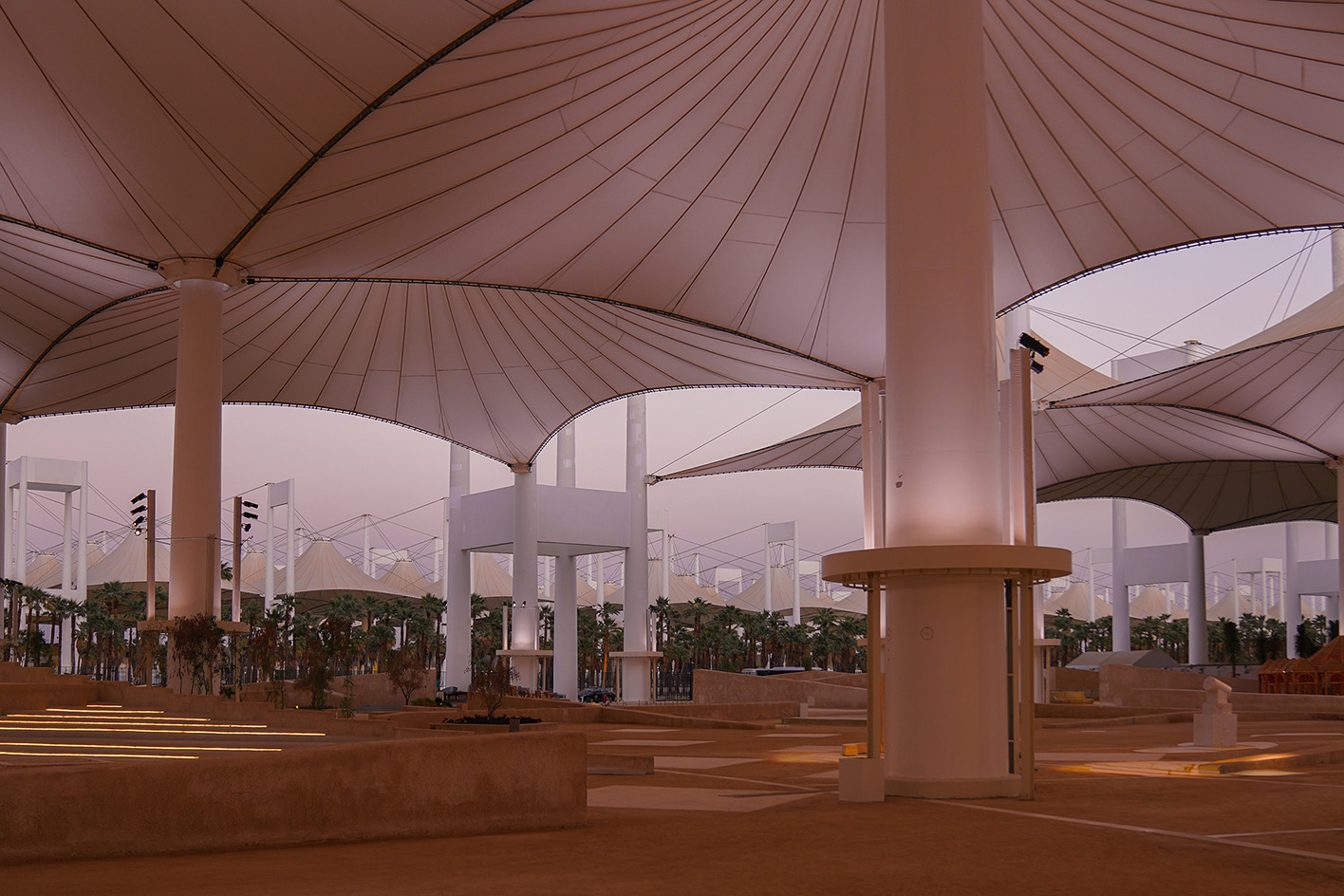
2023 Islamic Arts Biennale at the Western Hajj Terminal of King Abdulaziz International Airport
The installation will launch alongside the second edition of the Islamic Arts Biennale on 25 January 2025. The relatively new, global cultural event's first edition ran in 2023, curated by Sumayya Vally.
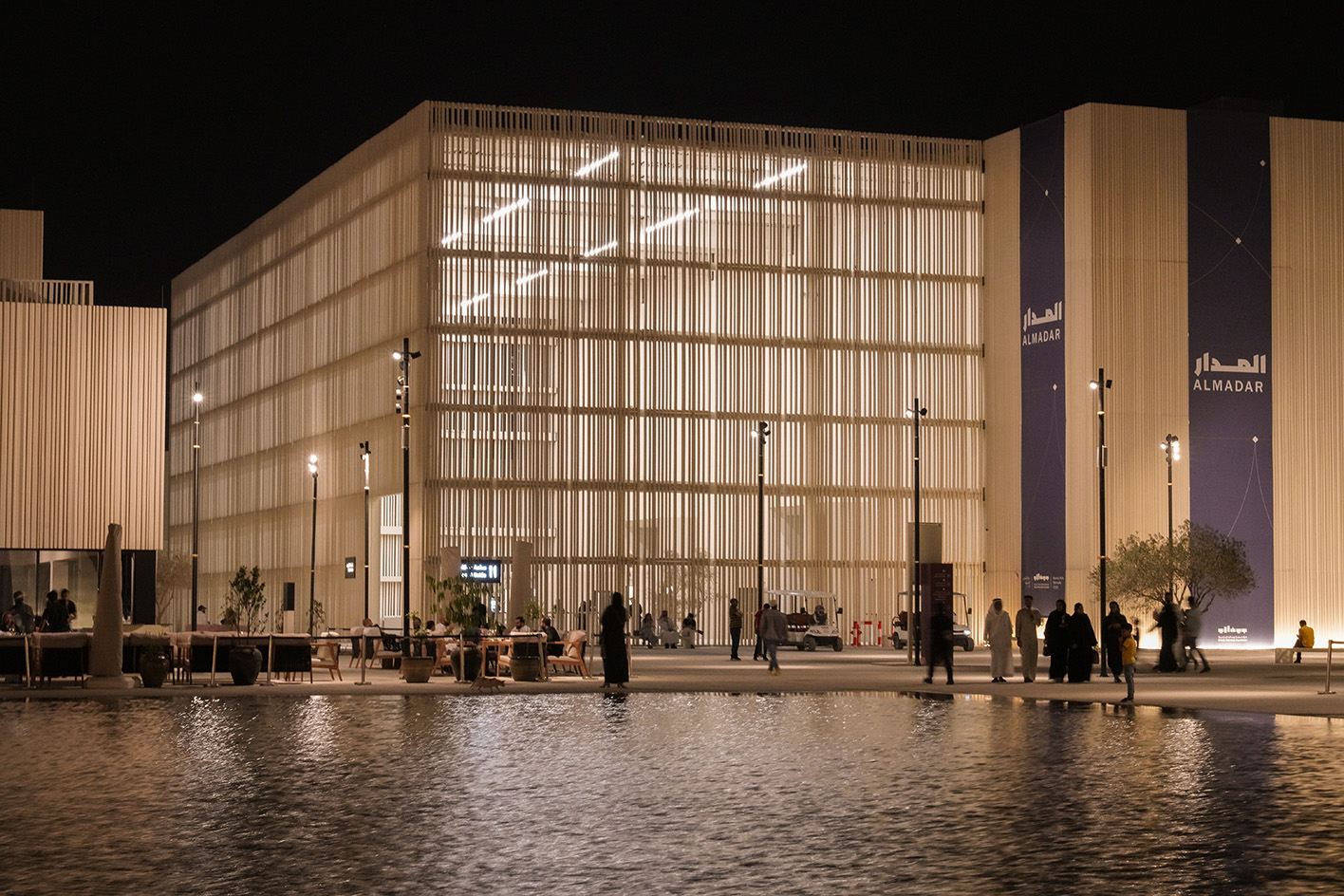
2023 Islamic Arts Biennale at the Western Hajj Terminal of King Abdulaziz International Airport
Ellie Stathaki is the Architecture & Environment Director at Wallpaper*. She trained as an architect at the Aristotle University of Thessaloniki in Greece and studied architectural history at the Bartlett in London. Now an established journalist, she has been a member of the Wallpaper* team since 2006, visiting buildings across the globe and interviewing leading architects such as Tadao Ando and Rem Koolhaas. Ellie has also taken part in judging panels, moderated events, curated shows and contributed in books, such as The Contemporary House (Thames & Hudson, 2018), Glenn Sestig Architecture Diary (2020) and House London (2022).
-
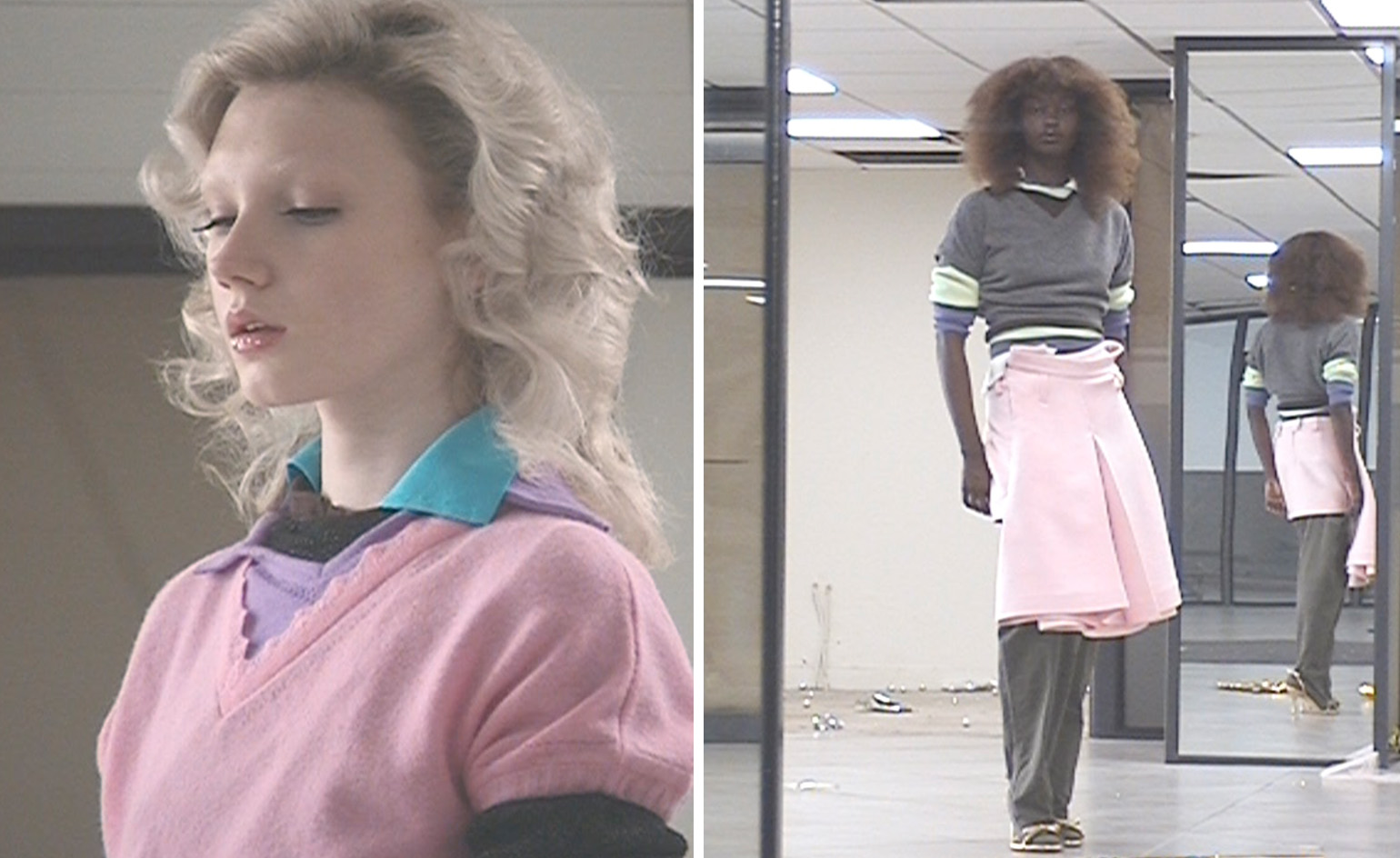 All-In is the Paris-based label making full-force fashion for main character dressing
All-In is the Paris-based label making full-force fashion for main character dressingPart of our monthly Uprising series, Wallpaper* meets Benjamin Barron and Bror August Vestbø of All-In, the LVMH Prize-nominated label which bases its collections on a riotous cast of characters – real and imagined
By Orla Brennan
-
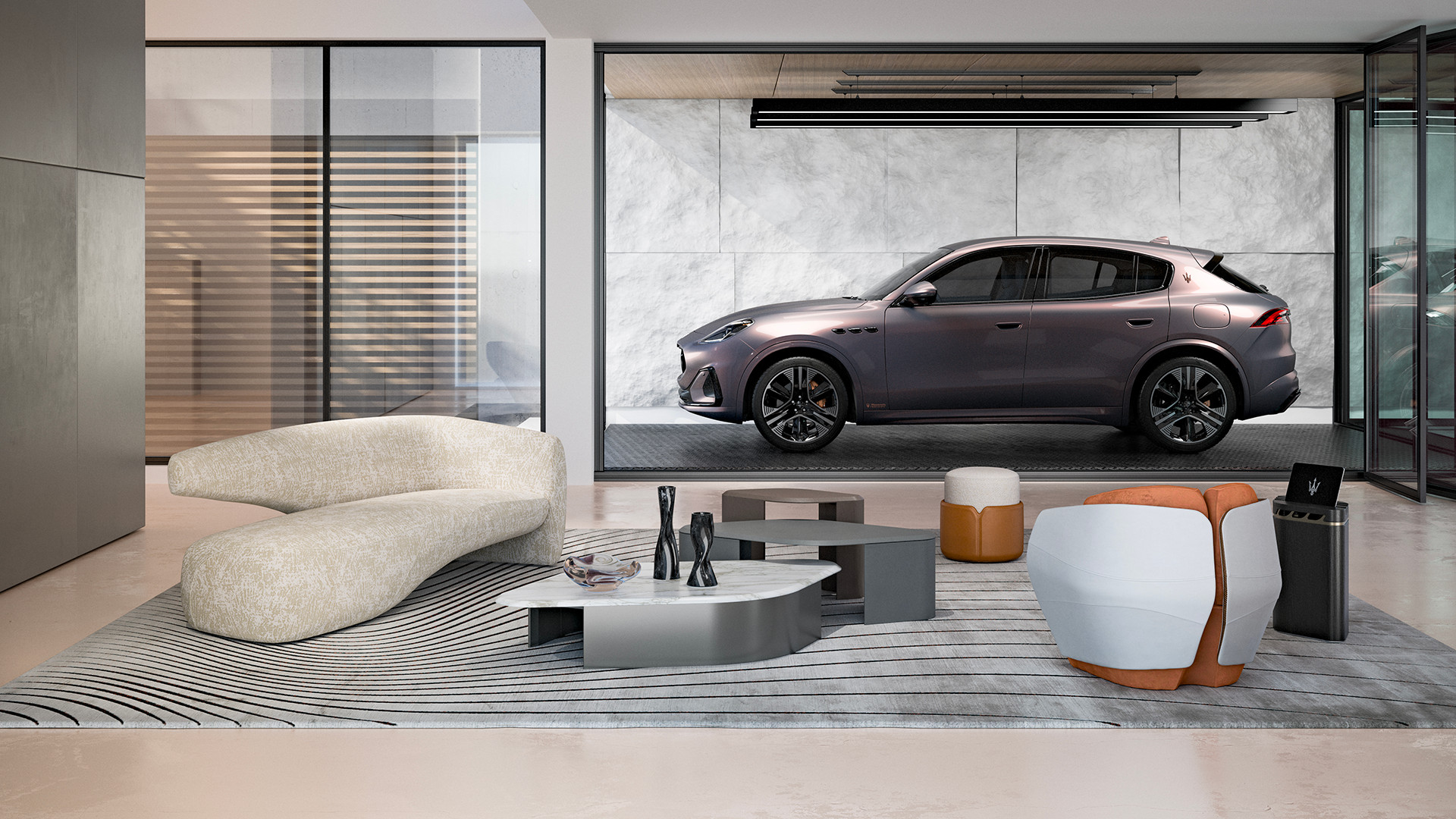 Maserati joins forces with Giorgetti for a turbo-charged relationship
Maserati joins forces with Giorgetti for a turbo-charged relationshipAnnouncing their marriage during Milan Design Week, the brands unveiled a collection, a car and a long term commitment
By Hugo Macdonald
-
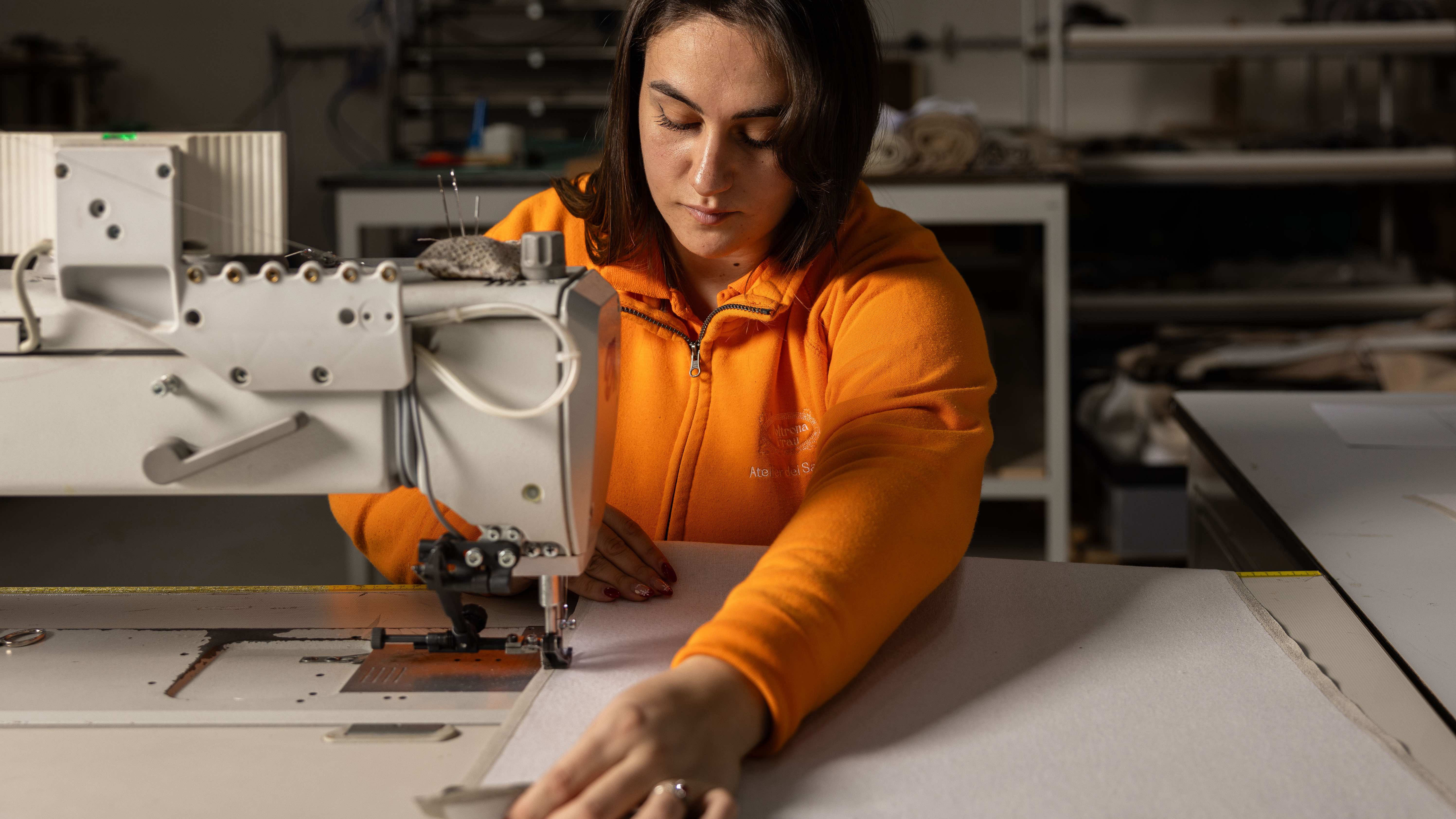 Through an innovative new training program, Poltrona Frau aims to safeguard Italian craft
Through an innovative new training program, Poltrona Frau aims to safeguard Italian craftThe heritage furniture manufacturer is training a new generation of leather artisans
By Cristina Kiran Piotti
